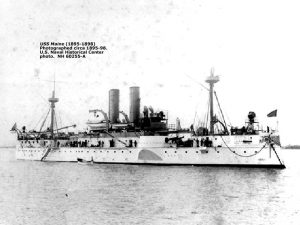August, 1939: The Third Reich, under the leadership of Adolf Hitler, is beginning to mobilize its military for an invasion of Poland. Previously, Hitler had expanded Germany’s borders to its old, pre-World War I borders with little repercussions from the Allied powers. This policy of “living space,” or Lebensraum, was used to unite Germany with Austria and annex the Sudetenland of Czechoslovakia in 1938, and then annex the rest of Czechoslovakia in 1939. But the future German Lebensraum would need more, and so German troops were called to the Polish border that August.1

As the troops prepared for the opening of the Blitzkrieg on Poland, the Wehrmacht physiologist Otto Ranke had realized the possible benefits of a popular medical stimulant called Pervitin for use in the army. Pervitin, marketed as a powerful stimulant, was an early form of crystal methamphetamine, and the drug’s ability to promote “wakefulness and alertness,” as well as induce a slight euphoria in its users, had caught the attention of the military. Ranke had authorized its deployment to the field troop’s ration kits as a small-scale test run of the drug’s effects on the soldiers poised to invade Poland.2
Reports from officers in the field on the drug’s effects were glowing. The quick conquering of Poland with minor losses was partly accredited to Pervitin. However, as the drug made the troops powerful fighters unlike any others ever faced, the side effects were also very noticeable. As the drug high wore off, heavy fatigue and withdrawal would set in, taking some troops out of the lines for up to two days. Profuse sweating, irritability, heightened aggression, and impaired judgement were just some of the side effects troops had to deal with. Regardless, the Reich viewed the drug’s positive attributes outweighed the side effects.3

With the successful invasion and annexation of Poland complete, Hitler had now crossed the line in the sand placed by the Allied powers. France and Great Britain officially declared war on September 3, 1939. The Western Front had now opened, and a complete naval blockade against Germany was in effect. With the medical reports from Poland being so good, the Wehrmacht decided to roll out Pervitin to the whole military, especially to the Luftwaffe, Germany’s Air Force.4
In April of 1940, the invasion of the Nordic States began in order to secure iron for the Reich and cut off an allied landing zone to Germany’s north. A month later, the Blitzkrieg would commence on the western front. Hitler simultaneously launched an offensive against France, Netherlands, Belgium, and Luxembourg. The incredibly short campaigns and low number of German casualties were, again, credited to the miracle pill Pervitin. However, the side effects of Pervitin and reports of soldiers abusing it were much more prevalent. Reichsminister of the Luftwaffe Herman Goering, and coincidentally one of Pervitin’s chief advocates, ordered the drug’s use to end in the military.5
In July of 1940, the beginning of the brutal air campaign by the Germans on the British commenced, known as the Battle of Britain. With the last major player of the allies being bombarded constantly by German sorties, a German victory in Europe seemed ensured. Despite Goering’s orders to cease use of Pervitin, Luftwaffe pilots used the drug completely unhindered by their superiors. The same applied to the Wehrmacht, who would find ways to get hold of the drug. By the end of 1940, it could be argued that Hitler’s war machine was hooked on meth.6
German Health Fuhrer Leo Conti, seeing Pervitin beginning to undo the ranks of the army and increasing dependence and abuse of the drug among the civilian population, made the drug illegal under the Reich Opium Law, effectively outlawing it—on paper, that is.7 Prohibition of Pervitin was sparsely enforced. Only the most fanatical Nazis would enforce the laws. With the outbreak of the war with Russia and the opening of the eastern front, use of Pervitin had actually increased among the soldiers as they marched towards Moscow. Operation Barbarossa, the Nazi plan for the invasion of the Soviet Union, would end up being a tremendous failure for Hitler, and it arguably assured an allied victory by surrounding the Germans on two sides, a mistake made before by Hitler’s predecessors in World War I.8

As supplies dried up and the Germans were pushed back further into Germany, use of Pervitin became sporadic. With German industrial locations made explicit targets of the Allied air campaign, simply producing anything in Germany on a large scale was neigh impossible. Troops would use it if they could find any, but in the same breath, finding any was very unlikely. It wouldn’t be until the end of the war that Pervitin would see wide scale production again.9
Methamphetamine is one of the most dangerous drugs ever created by man. With the lack of information and little understanding of side effects in drugs during the twentieth century, it was no wonder the drug caught on like wild fire. Couple that with the racial superiority complex of the Nazis and the search for anything to promote that image, Pervitin was exactly the tool needed to fuel the war, and a catalyst to bring it to an end.
- Gale Encyclopedia of World History: Governments, Vol 1, 2008, s.v. “Nazi Germany.” ↵
- UXL Encyclopedia of Drugs and Addictive Substances, 2006, s.v. “Methamphetamine,” by Barbara C. Bigelow. ↵
- Gale Encyclopedia of World History: Governments, Vol 1, 2008, s.v. “Nazi Germany”; Norman Ohler, Blitzed: Drugs in Nazi Germany (U.K.:Penguin Random House), 48, 50, 63. ↵
- The Encyclopedia of the Third Reich, 1991, s.v. by Christian Zentner and Friedemann Bedürftig. ↵
- The Encyclopedia of the Third Reich, 1991, s.v. by Christian Zentner and Friedemann Bedürftig. ↵
- Norman Ohler, Blitzed: Drugs in Nazi Germany (U.K.: Penguin Random House), 96, 100, 106. ↵
- Norman Ohler, Blitzed: Drugs in Nazi Germany (U.K.:Penguin Random House), 269, 273. ↵
- The Encyclopedia of the Third Reich, 1991, s.v. by Christian Zentner and Friedemann Bedürftig. ↵
- Norman Ohler, Blitzed: Drugs in Nazi Germany (U.K.: Penguin Random House), 296, 300. ↵



53 comments
Eric Ortega Rodriguez
I have never heard that the Nazi army was on Pervitin before reading this article. I find it surprising to what extent people would go to in order to achieve victory, especially during a war. I find it interesting to read that Pervitin was given to soldiers for them to have energy, but the ironic thing is that it ended up being their downfall. Overall, this was a great topic selection because more people should know about what soldiers went through. Good work.
Engelbert Madrid
This was an interesting article. I didn’t know that the German soldiers were introduced to a certain type of meth called Pervitin, which is a highly dangerous drug. Meth can highly destroy a person’s life, because it is highly addicting and it leads to long term problems, such as permanent heart damage and severe breathing problems. I’m glad to know a little more of international history during World War II.
Victoria Salazar
Very interesting. I had never heard of Pervitin. Although it could be considered common sense, I had never really thought that either side used drugs during the war. I know cigarettes were commonly used but not meth. It makes me wonder if the Allied Powers would still have won the war if the Axis Powers had not dug their own grave by getting its military addicted to drugs. A cool related topic could be, “How did Pervitin come to be?”
Madison Downing
This was such and interesting article to read because I never would have thought that the Germans would use drugs before going out to fight. I guess it is almost like the Vikings who used psychedelic drugs before going to enter battle. In a war respect I can see why Germany allowed so much of the use of the drug because of the better fighting it made their soldiers preform but still that seems morally questionable.
Nathan Alba
I always figured the Nazis had some sort of upper hand on the rest of Europe somehow. Never, in my wildest dreams, would I guess that it was because the soldiers were hooked on crystal meth. I mean everyone nowadays knows how dangerous and deadly the drug is along with its side affects. But then again, maybe that was why it was so useful, in such a hostile environment– maybe it just benefited those who were at war.
Christopher Hohman
Nice article. I had never heard that the nazis had made use of this drug during the second world war. It is scary to think of how effective the Nazi war machine was against the allies in the early stages of the war, but to imagine them on drugs also is just downright terrifying. It is so interesting how the doctors in the reich noticed the side effects of the drug like addictions. It was certainly alarming to them, but they really failed to stop it.
Devin Ramos
I like this article because I have never heard of the Nazis using meth to increase their soldier’s strength. The fact that the Nazis would instead take the few benefits of pervitin over the whole list of side effects shows how crazy for domination and winning they were. They wanted to create super soldiers to win the war effort.
Nathalie Herrera
I had never heard this story before of Nazis using drugs in order to fuel their army. Despite this being new information for me and a shock, I am not all that surprised this was a thing. Yet, it is just sad to read the great lengths the Nazi army would go to in order to have success in their hands. Really interesting read!
Sofia Andrade
In my years of learning about history I have learned about WWl and Hitler a countless amount of times. I knew that Hitler’s army was a great and successful one. This article opened my mind to something that would have never crossed my mind. Hitler’s ambition is always emphasized but using drugs to keep his successful army is definitely a different technique.
Lorenzo Rivera
This article was extremely interesting and well written. It helped me gain an entirely new insight on how malevolent, and horrible the Nazi party was, and how bad they wanted to succeed at achieving their 1000 year Reich. It is crazy to think about how these soldiers were given drugs in order to stay alert in battle, and what they were even thinking about during battle. Hopefully we never have to experience another conflict of this magnitude, especially with such a relentless enemy.